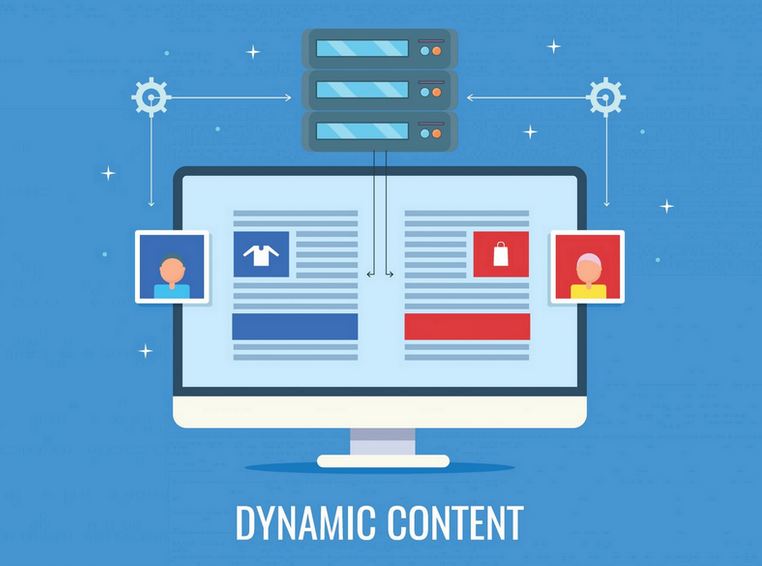Published
|Last updated
Dynamic content
Find out what Dynamic Content means - in online marketing. Click and read more.
Published
|Last updated
Find out what Dynamic Content means - in online marketing. Click and read more.
![What is Dynamic Content - Definition [Marketing Dictionary]](/assets/img/dictionary-background.webp)
What is Dynamic Content
Dynamic Content - is a type of marketing content that is automatically customised and personalised for each user in real time based on their interactions, preferences, browsing history, demographics or other customer data. This type of content changes dynamically, offering a more personalised and relevant experience for individual user preferences.

Dynamic content in online marketing offers several advantages that can significantly influence the effectiveness of marketing campaigns and user satisfaction and behaviour. Here are the main benefits of using dynamic content strategy:
Implementing dynamic content in online digital marketing, while offering many benefits, also comes with several challenges. Here are some of the main difficulties that companies may encounter when implementing this strategy:
Data management: effective use of dynamic elements requires access to accurate and up-to-date user data collected, which can be challenging regarding data privacy and security.
Technological complexity: implementing personalisation and dynamic content block requires sophisticated IT systems and integrating different tools and platforms, which can be costly and complicated.
Testing and optimisation: dynamic content must be continuously tested and optimised to ensure that personalisation works correctly and effectively meets user expectations or site visitors.
Dynamic content is becoming increasingly popular in marketing strategies, especially in the context of increasing user expectations of personalisation. Technological developments, such as AI and machine learning, will further drive innovation in marketing automation, enabling even more advanced personalized marketing.
❤️ Spread the word! ❤️
Found this guide valuable? Share it with your colleagues to help them boost their local marketing results too!
Powered by Localo 2026